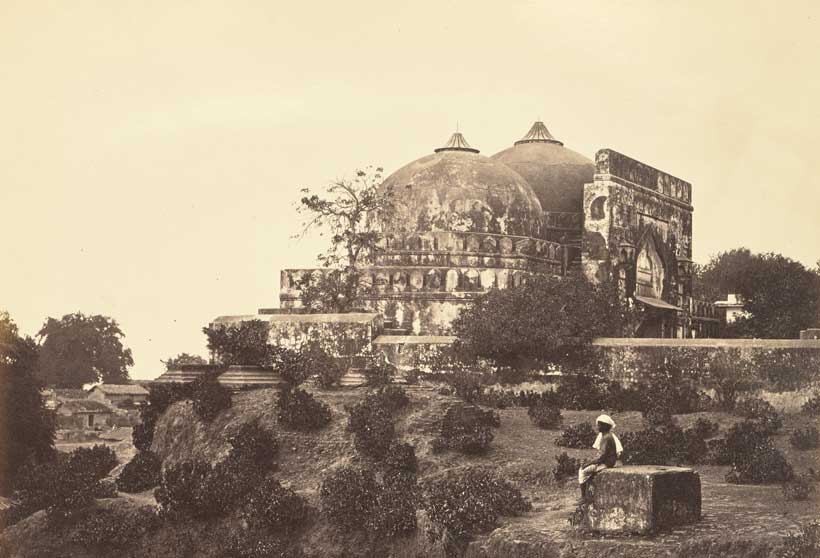When Faith Divides: The Ayodhya Conflict That Shook India's Social Fabric

The conflict transcends simple religious explanations, weaving a complex tapestry of interconnected factors. Far beyond theological differences, this intricate struggle is deeply rooted in a rich and nuanced landscape of political tensions, historical grievances, social dynamics, and cultural complexities. Religious identity, while significant, represents merely one layer in a multidimensional conflict that demands a more comprehensive and nuanced understanding.
The roots of this conflict run deep, intertwining political ambitions, historical narratives, societal structures, and cultural identities into a challenging and intricate web of interactions. To reduce such a sophisticated dispute to religious differences alone would be a profound oversimplification that fails to capture the true depth and complexity of the underlying tensions.
Understanding requires a holistic approach that examines the intricate interplay of political power, historical context, social structures, and cultural narratives that have shaped and continue to influence this ongoing conflict. Only through a comprehensive and empathetic lens can we begin to unravel the true nature of these profound and multifaceted challenges.
Unraveling the Complex Tapestry of Religious and Political Tensions: A Deep Dive into Communal Conflicts
In the intricate landscape of global sociopolitical dynamics, few narratives are as nuanced and deeply rooted as the conflicts that emerge from the intersection of religious identity, historical grievances, and political manipulation. These complex interactions transcend simple categorizations, demanding a sophisticated understanding that goes far beyond surface-level interpretations.Navigating the Labyrinth of Cultural and Historical Tensions
The Multidimensional Nature of Religious Conflicts
Religious conflicts are rarely straightforward manifestations of theological differences. They represent intricate social phenomena deeply embedded in historical contexts, power structures, and collective memory. The complexity emerges from layers of historical trauma, territorial disputes, and systemic marginalization that have accumulated over generations. Anthropological research reveals that these conflicts are not merely theological disagreements but sophisticated expressions of social identity, political power, and cultural narratives. Communities often weaponize religious symbolism to articulate deeper socioeconomic grievances, transforming spiritual beliefs into potent political instruments.Historical Roots and Sociopolitical Dynamics
The genesis of religious tensions typically traces back to colonial legacies, territorial disputes, and systemic inequalities. Imperial powers historically exploited religious differences as strategic mechanisms for divide-and-rule policies, creating lasting fractures within societies that persist long after formal colonial administrations have dissolved. These historical wounds continue to reverberate through contemporary social structures, manifesting in complex patterns of discrimination, institutional bias, and cyclical violence. Understanding these conflicts requires a nuanced approach that acknowledges the multifaceted nature of human social interactions.Political Instrumentalization of Religious Identity
Political actors frequently leverage religious identities as powerful mobilization tools, transforming spiritual beliefs into strategic political resources. By constructing narratives of collective victimhood and external threat, leaders can consolidate power, generate social cohesion, and deflect attention from systemic economic challenges. This strategic manipulation often involves carefully crafted rhetoric that resonates with deep-seated cultural memories, transforming abstract theological concepts into tangible political movements. The result is a volatile environment where religious identity becomes a primary lens through which social conflicts are interpreted and experienced.Psychological and Sociological Dimensions
The psychological impact of prolonged religious tensions cannot be understated. Communities develop intricate collective narratives that reinforce group boundaries, creating complex mechanisms of social inclusion and exclusion. These psychological constructs become self-perpetuating systems that resist external intervention and rational dialogue. Sociological research demonstrates that these conflicts are fundamentally about recognition, dignity, and the human need for meaningful collective identity. Religious differences become proxies for deeper existential struggles, representing far more than mere theological disagreements.Pathways to Understanding and Resolution
Addressing religious conflicts requires sophisticated, multidisciplinary approaches that recognize the complexity of human social interactions. Effective strategies must simultaneously address historical grievances, current power structures, and future reconciliation possibilities. Dialogue, education, and institutional reforms represent critical components of sustainable conflict transformation. By creating spaces for genuine cross-cultural understanding and addressing systemic inequalities, societies can begin to deconstruct the intricate mechanisms that perpetuate religious tensions.

